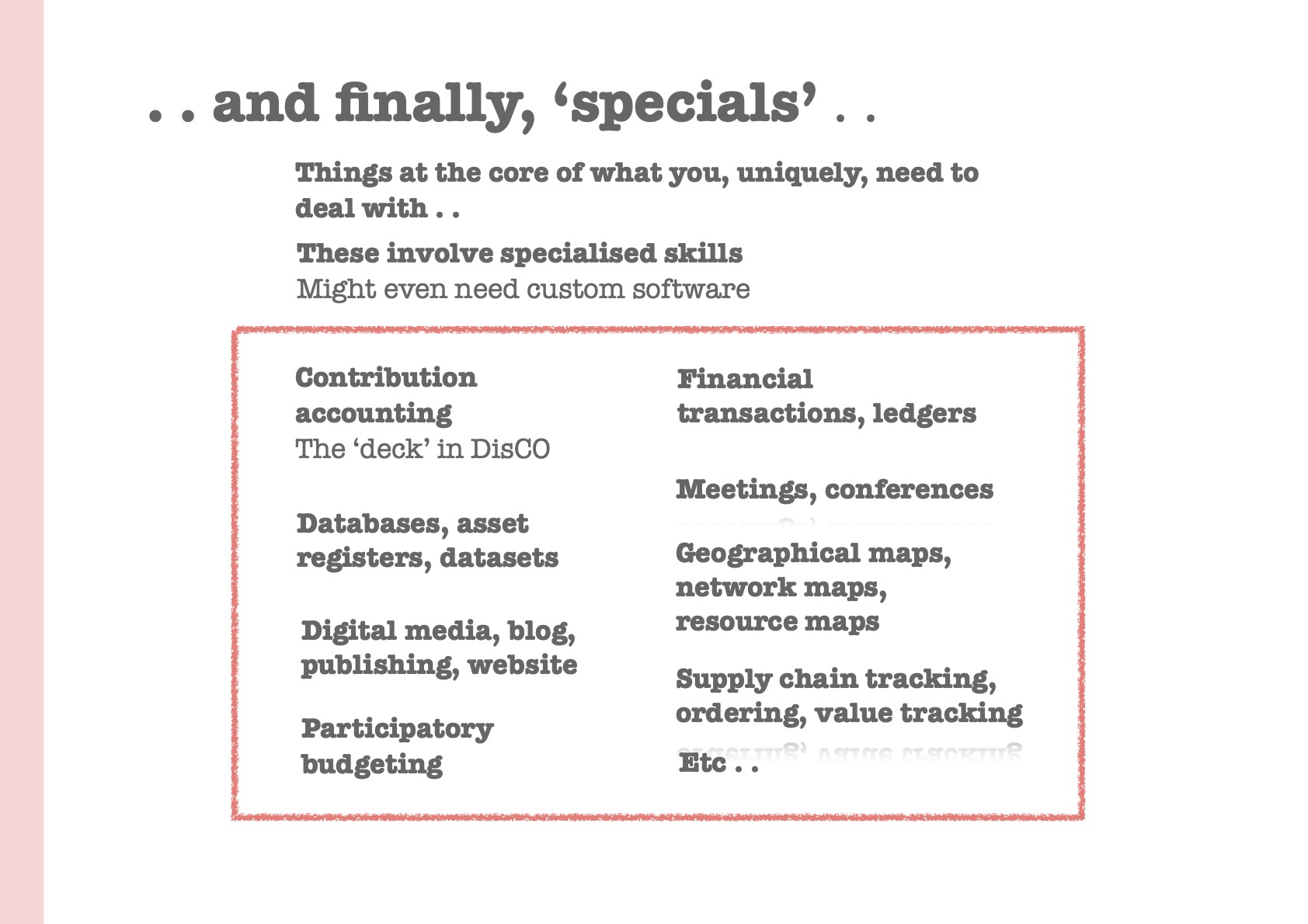I’m not going to say much about these at this time. In different areas of work, depending on what kind of thing you work on in that field, you'll require different special tools.
These Specials should be approached in the context of tools in a Trinity and a Stack, together comprising a toolstack for activist collaborating.

Specials - Varying along with the particular stuff you engage with
**Contribution accounting** is very important to the guys in the DisCO model of governance for instance: who contributes, and what? They have a very sophisticated idea of contributions (arising in feminist economics) and they need to be able to track it, in order to be able to value the contributions fairly, and give recognition fairly, and distribute payments or benefits transparently. In any ongoing collaboration, people do time tracking in some way (the stack). Few do principled contribution accounting; more should.
**Databases**, asset registers, handling large volumes of assembled data. Research or survey organisations stand or fall on their capacity in handling data. More people should handle more data, but digital data literacy isn't that widespread. Our enemies are better at it, generally.
**Digital media** is a specialised area, needs special tools: video, streaming media, collections of media, etc. Not every organisation has to get into this domain. But every person and their dog has some kind of social media presence: Facebook page, website, blog, Snapchat feed. Only some of which are in any sense capably managed (curated). >Many love to dabble here - on corporate platforms, like YouTube and Vimeo - where our comings and goings are tracked and profiled. Our audio is robot-transcribed, even; and text-scanned and profiled. So few people understand the scope of power that this gives the corporate platforms - and the 'security' agencies. It may be artificial, but 'intelligence' in its good old-fashioned sense of engaging the enemy, is alive and well in digital infrastructure.
**Participatory budgeting** is not for everybody either, but when you do you really need the tools for it . . *Cobudget*; at municipal scale, *Decidim*.
Financial transactions, **ledgers**: again it's not something everybody has to do every day. But if that's where you're working you need tools for that. Establishing infrastructures of different *machineries of exchange* (plural) is profoundly important. And I don't mean blockchain currencies, aarghh.
**Supply chain tracking (provisioning)** is profoundly important, even though a relatively small proportion of organisations do this. Any organisation that trades, or furnishes the material needs of a community (food, care, clothing, accommodation . . personal proitective equipment, vaccines . .) needs tools for supply-chain and value-chain tracking. Some radical means for this are in the pipeline: not a day too soon. The corporations of post-Fordism have a head start on us.
And so on . . engagements with different kinds of sectors in the world call for specialisation of the tools that we may need. And the **skills** to mobilise them effectively. At this level, things get complicated: divisions of labour and skill get complicated
--- > This original idea of Specials can be evolved. Specifically, some of the elements can be regarded as being required in any practice that seriously engages with the world out-there (even if the tools are less familiar, and the skills more specialised). So, they might be promoted to an Extended trinity.